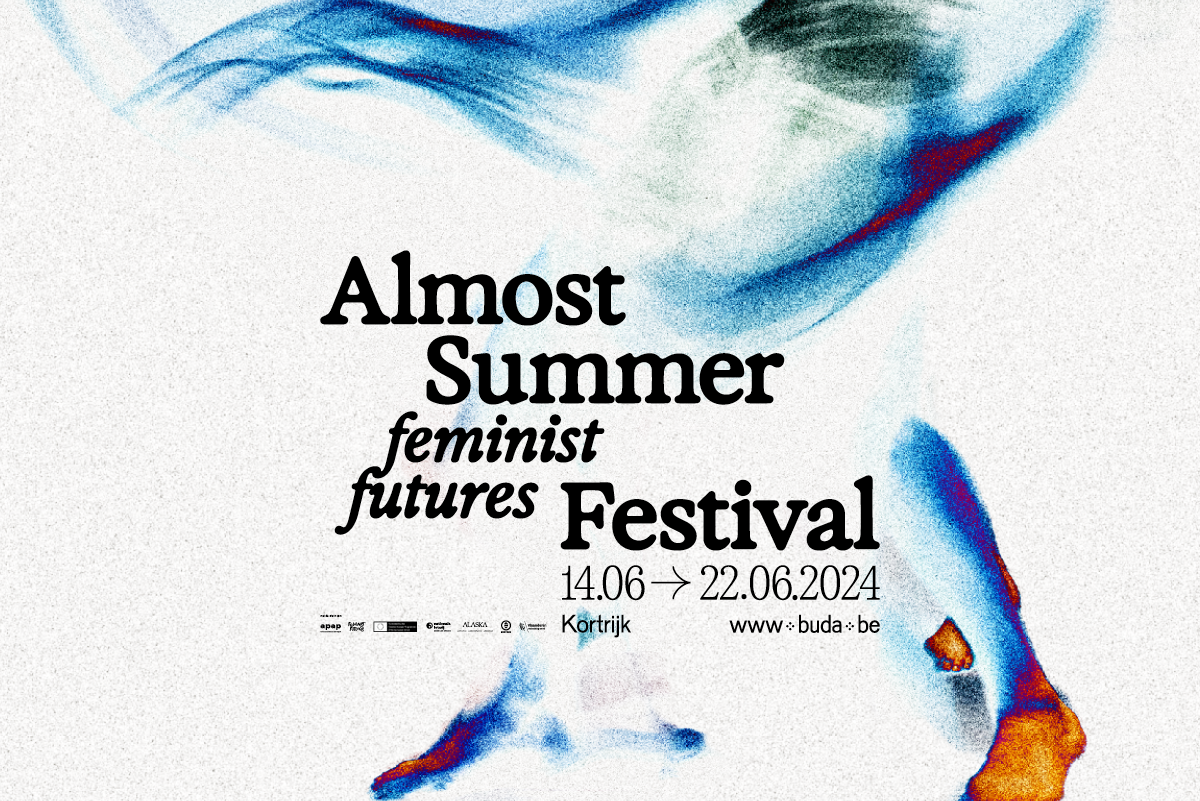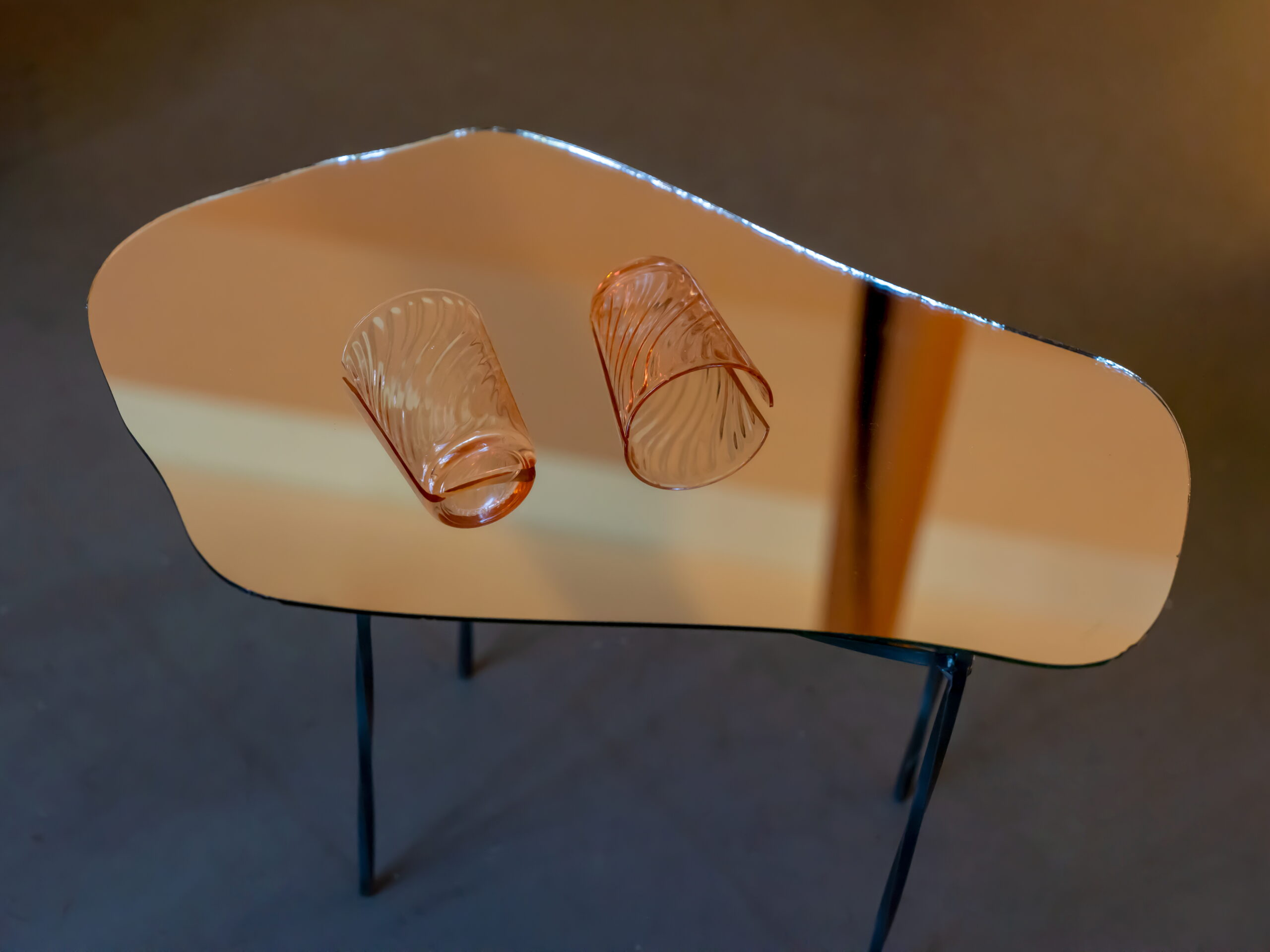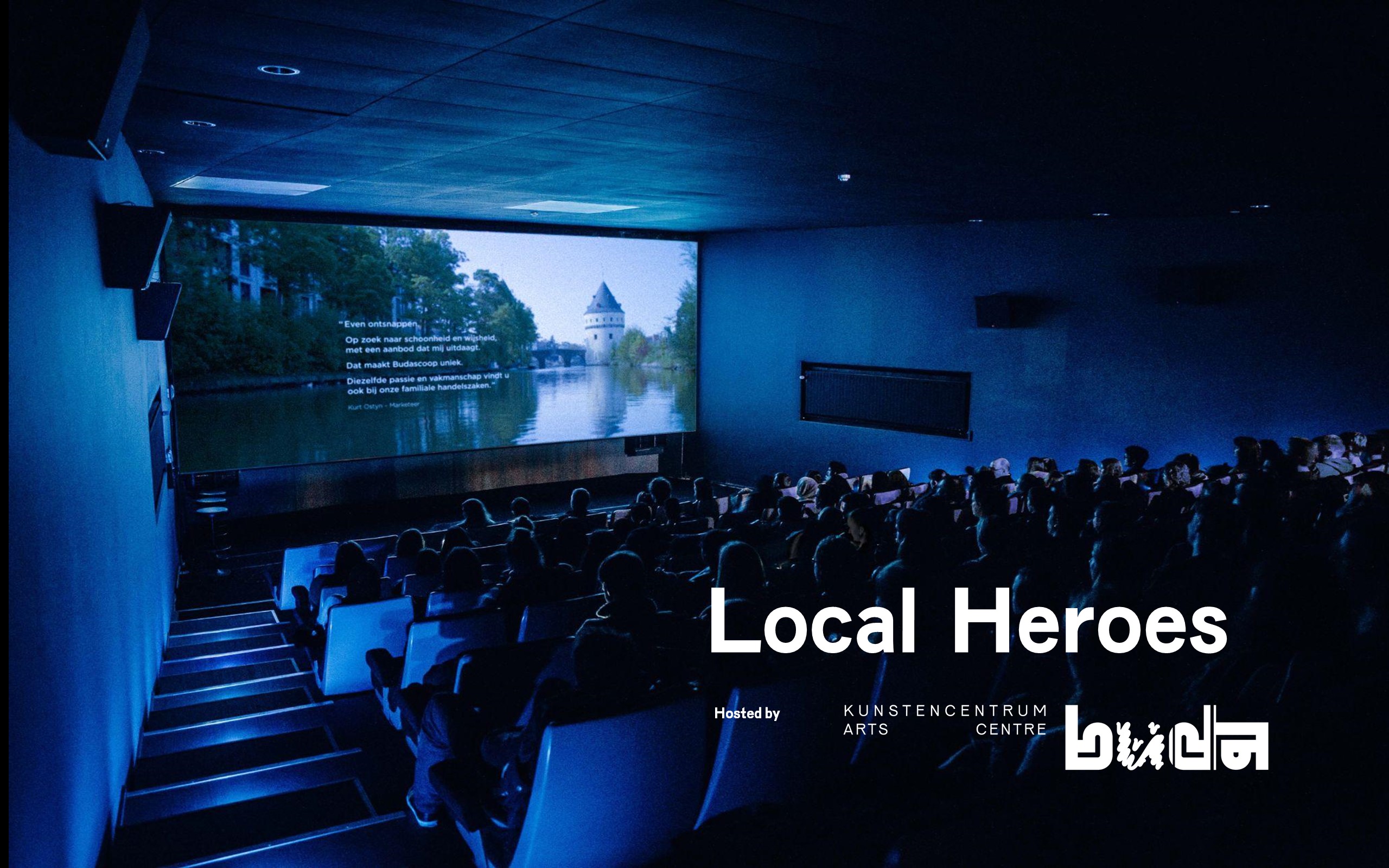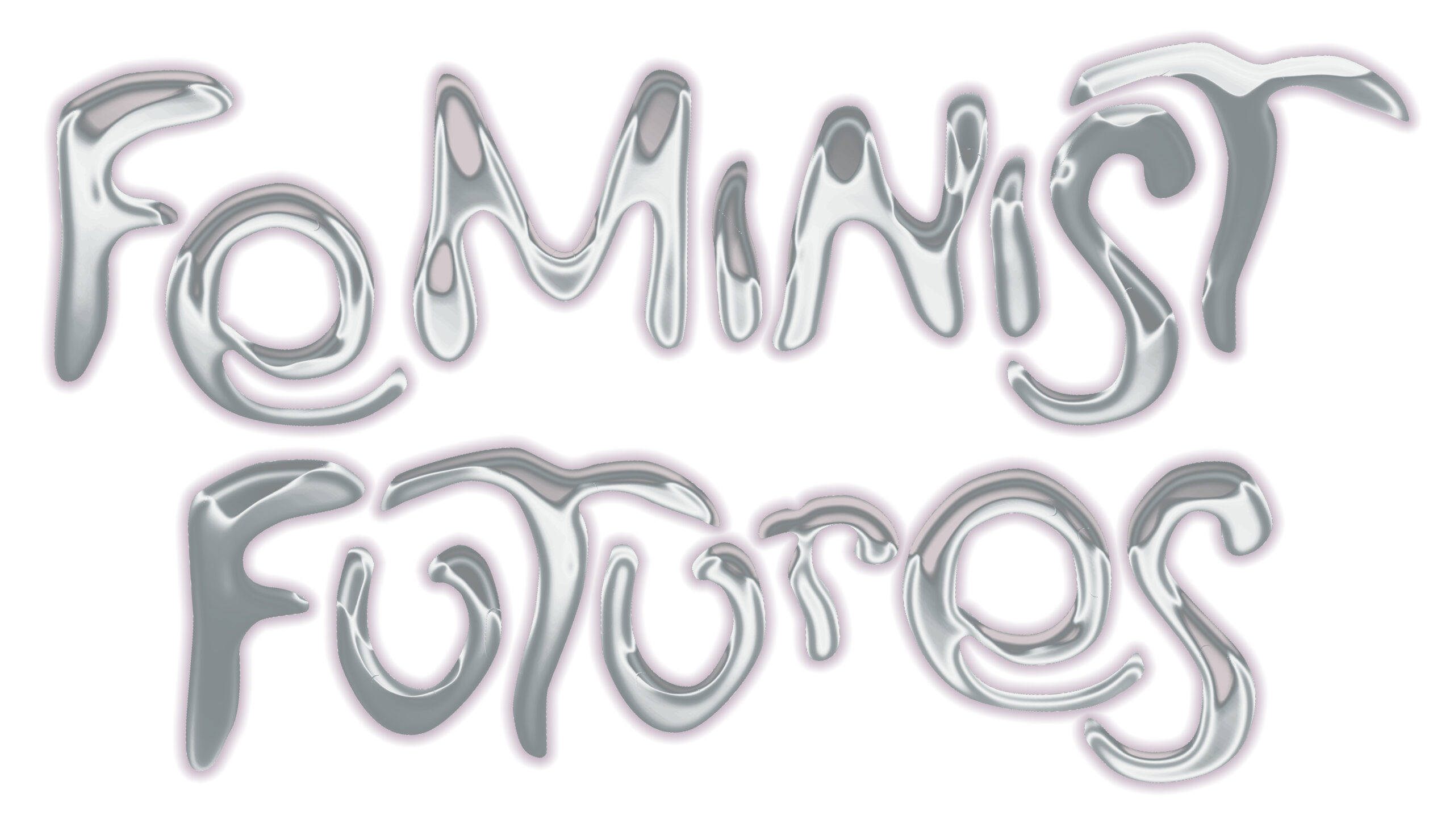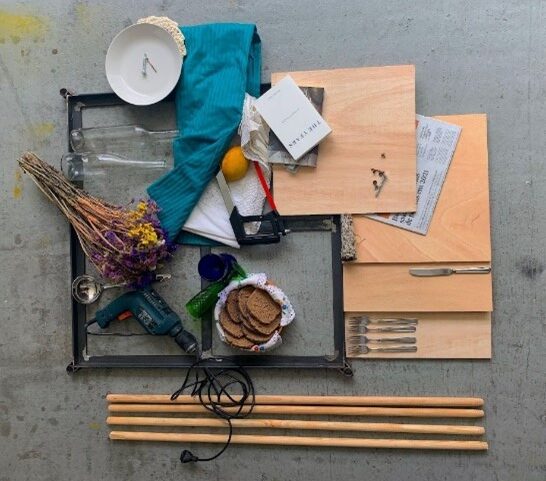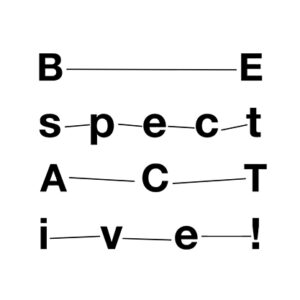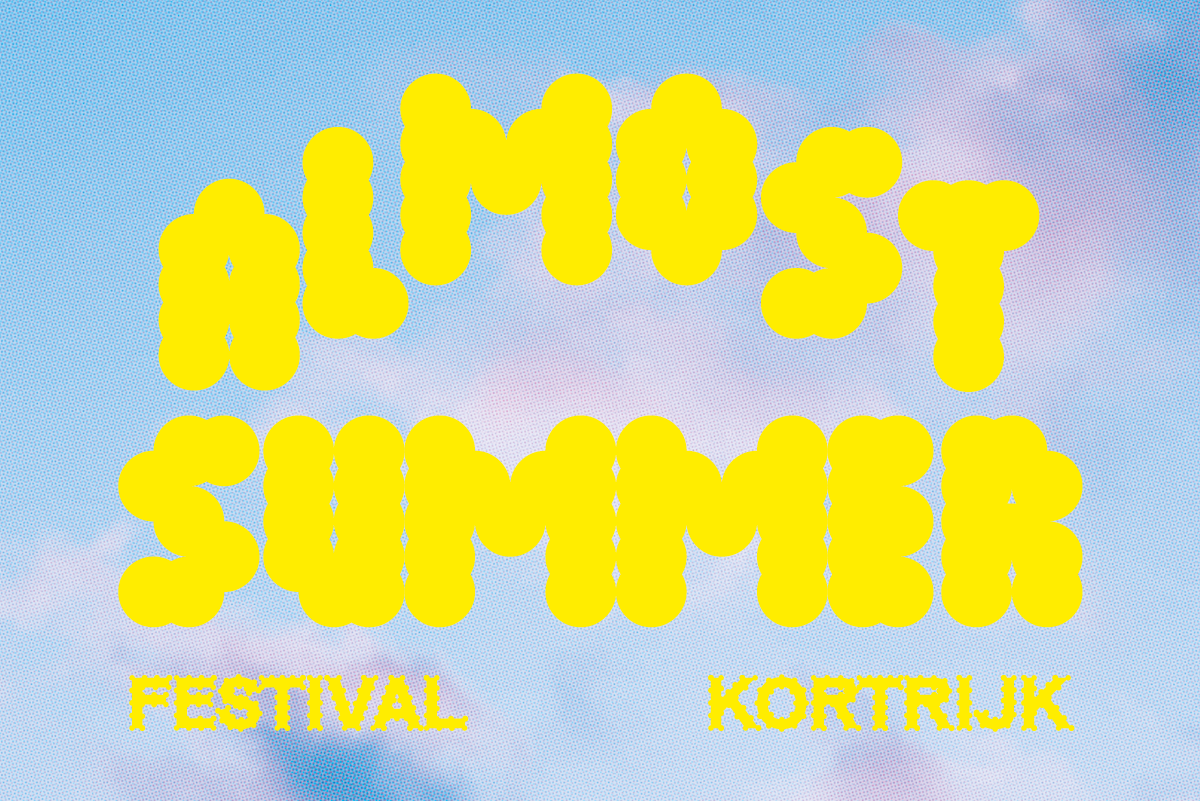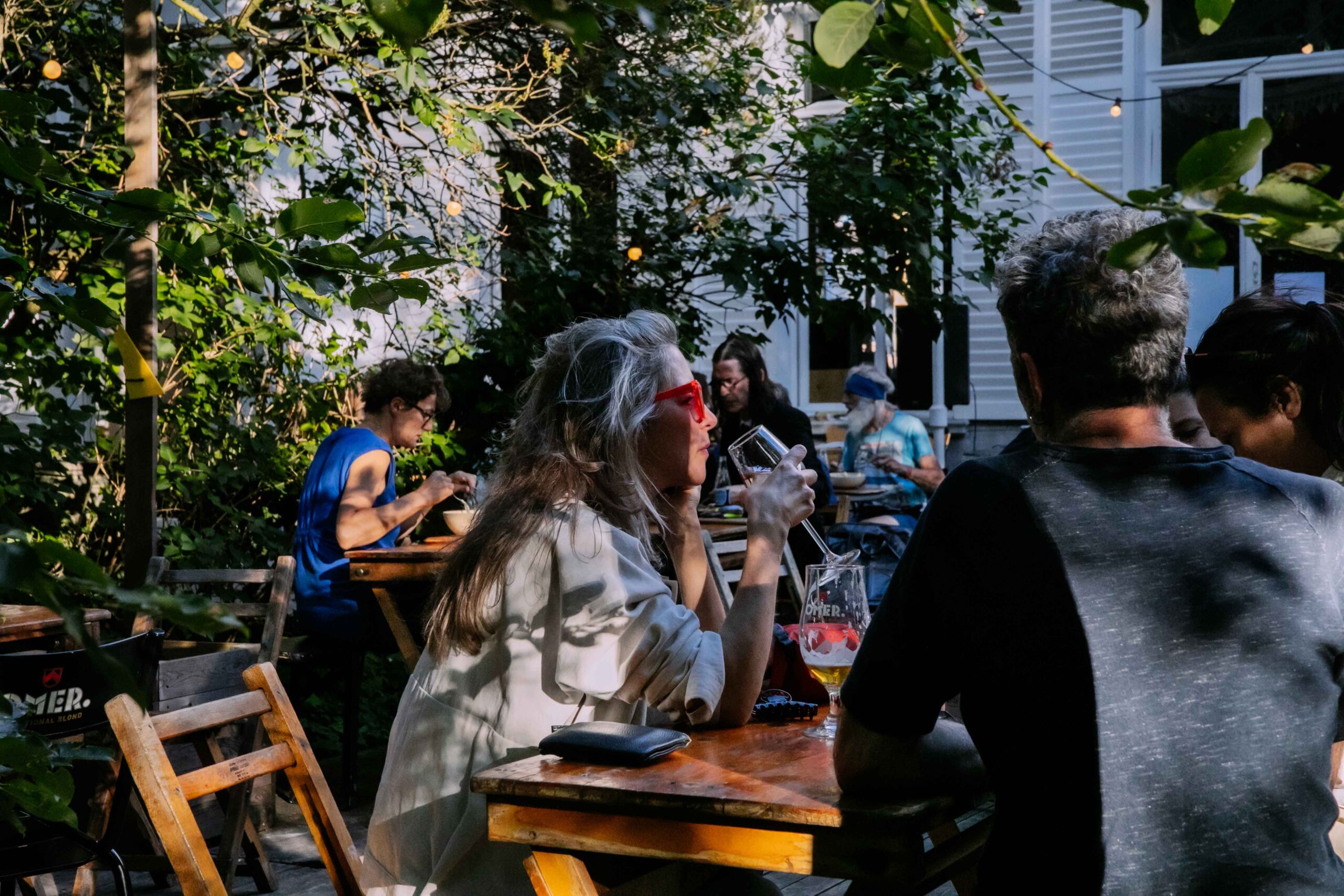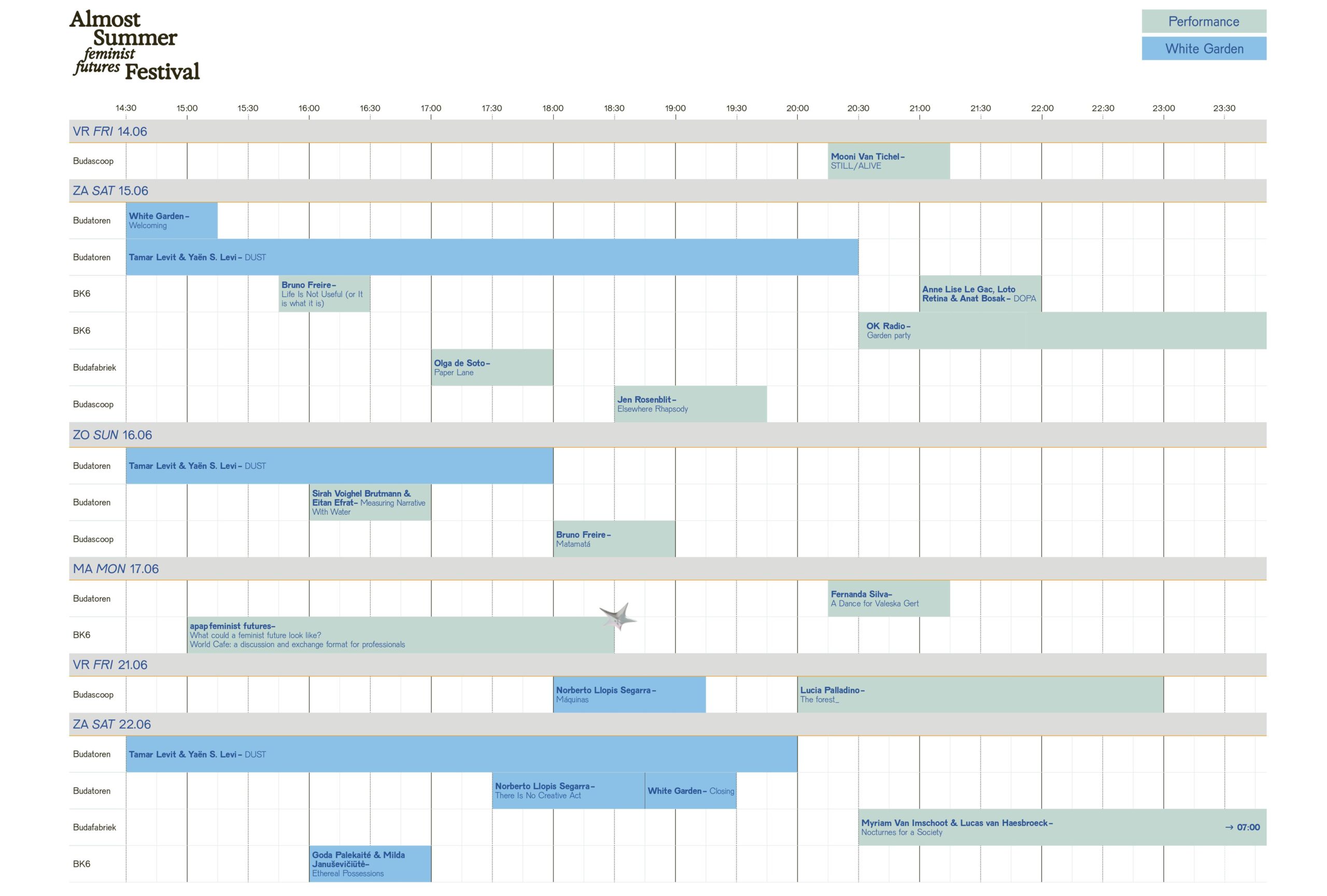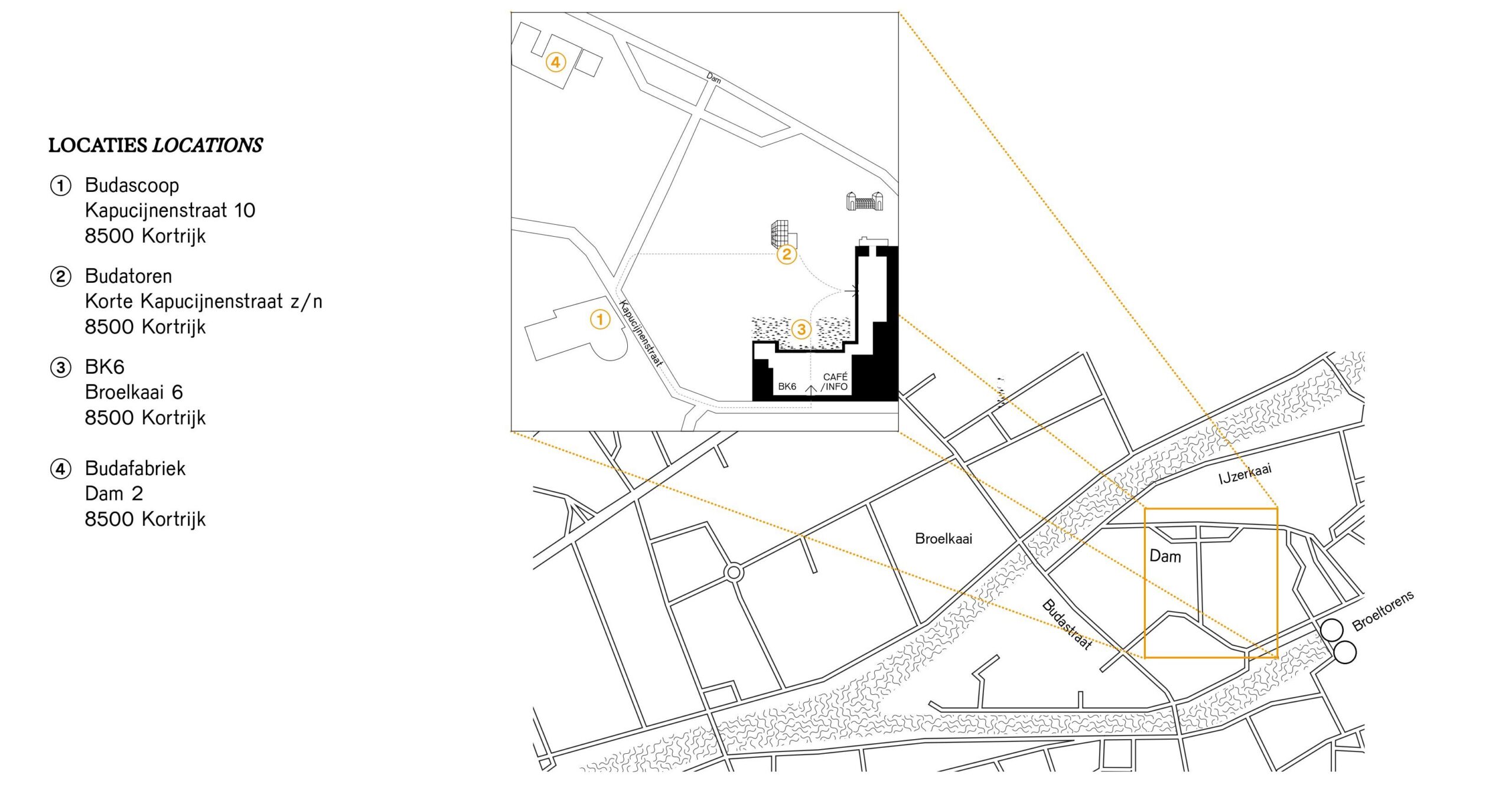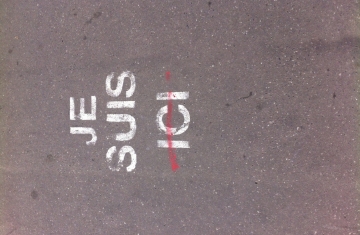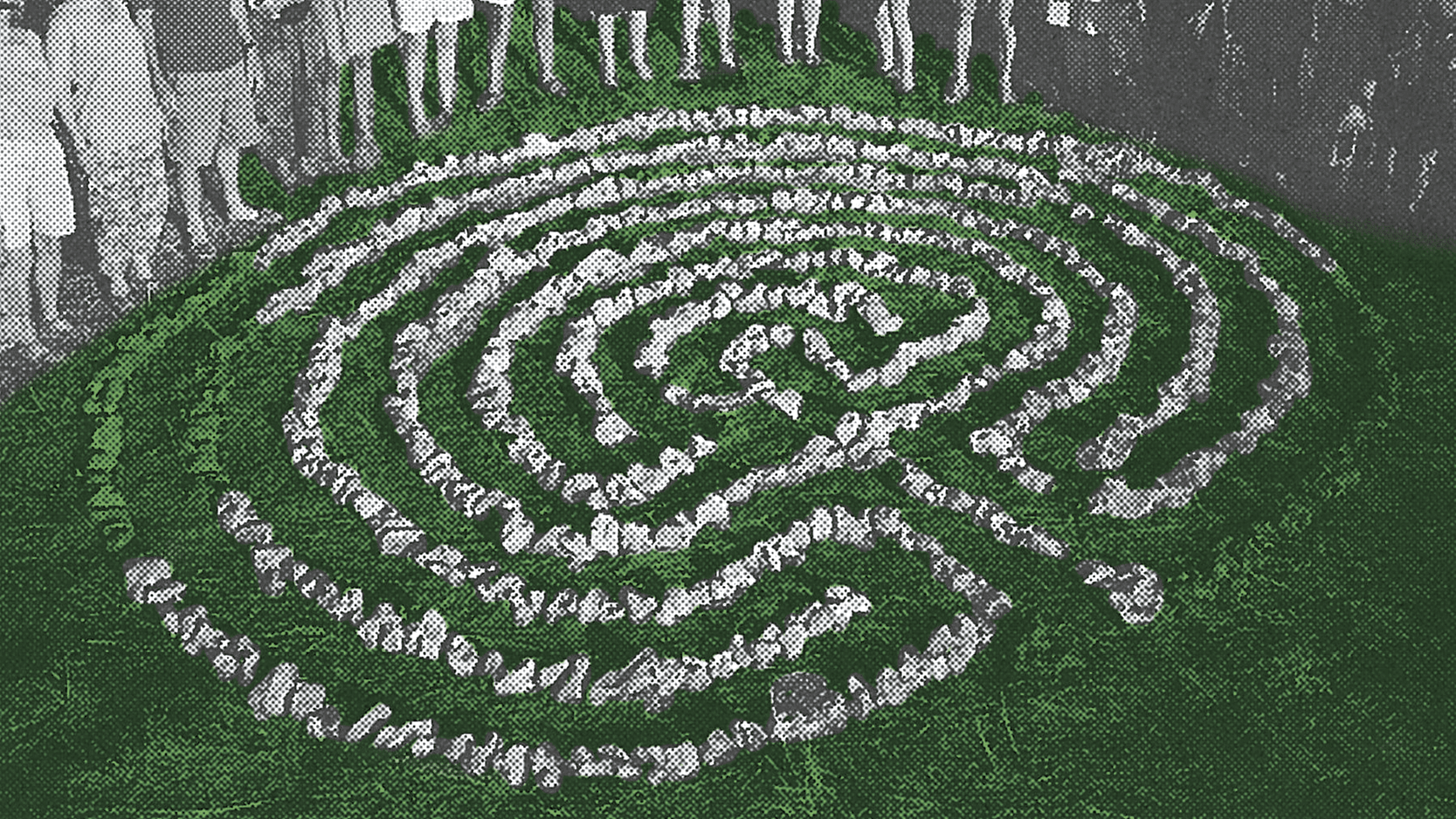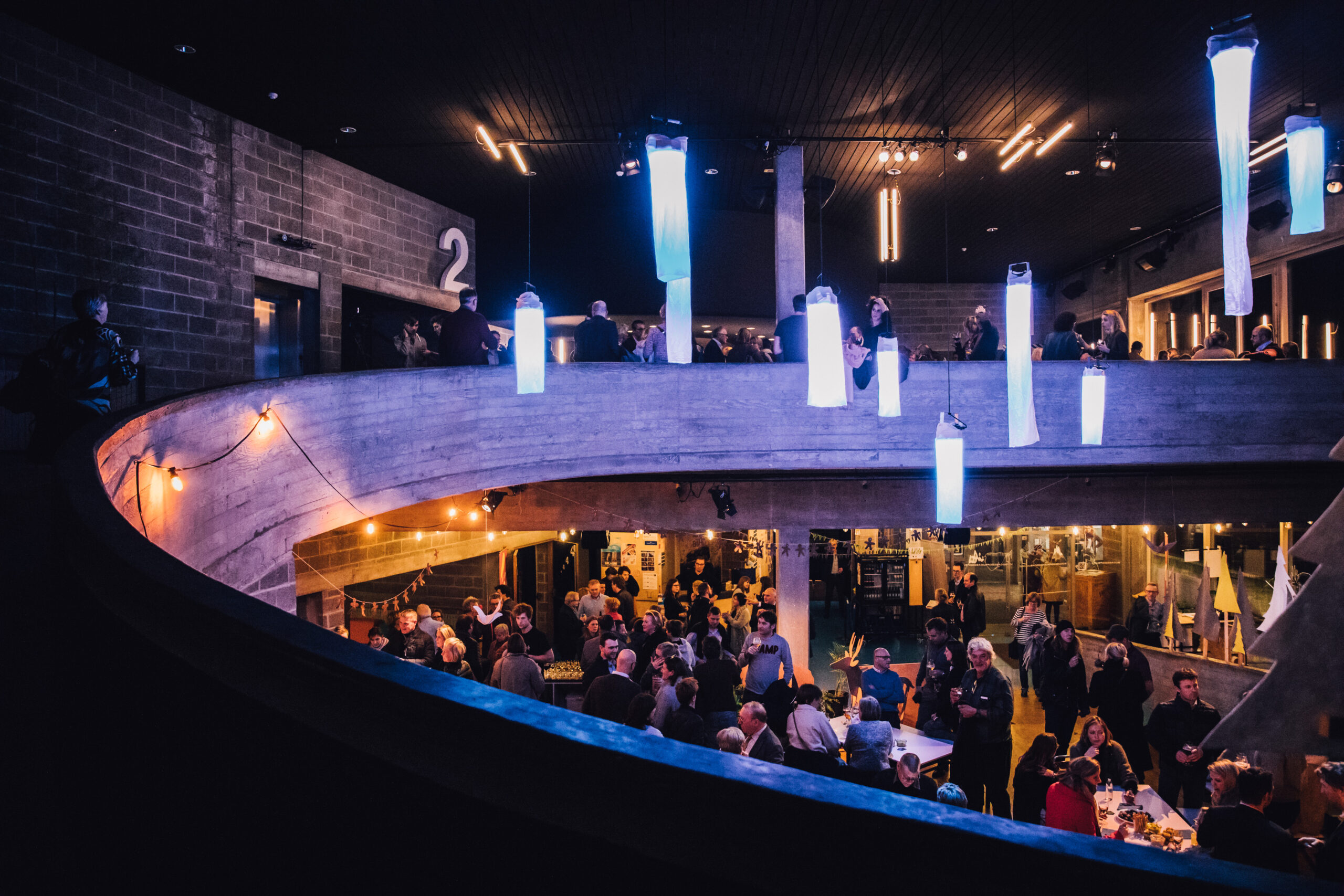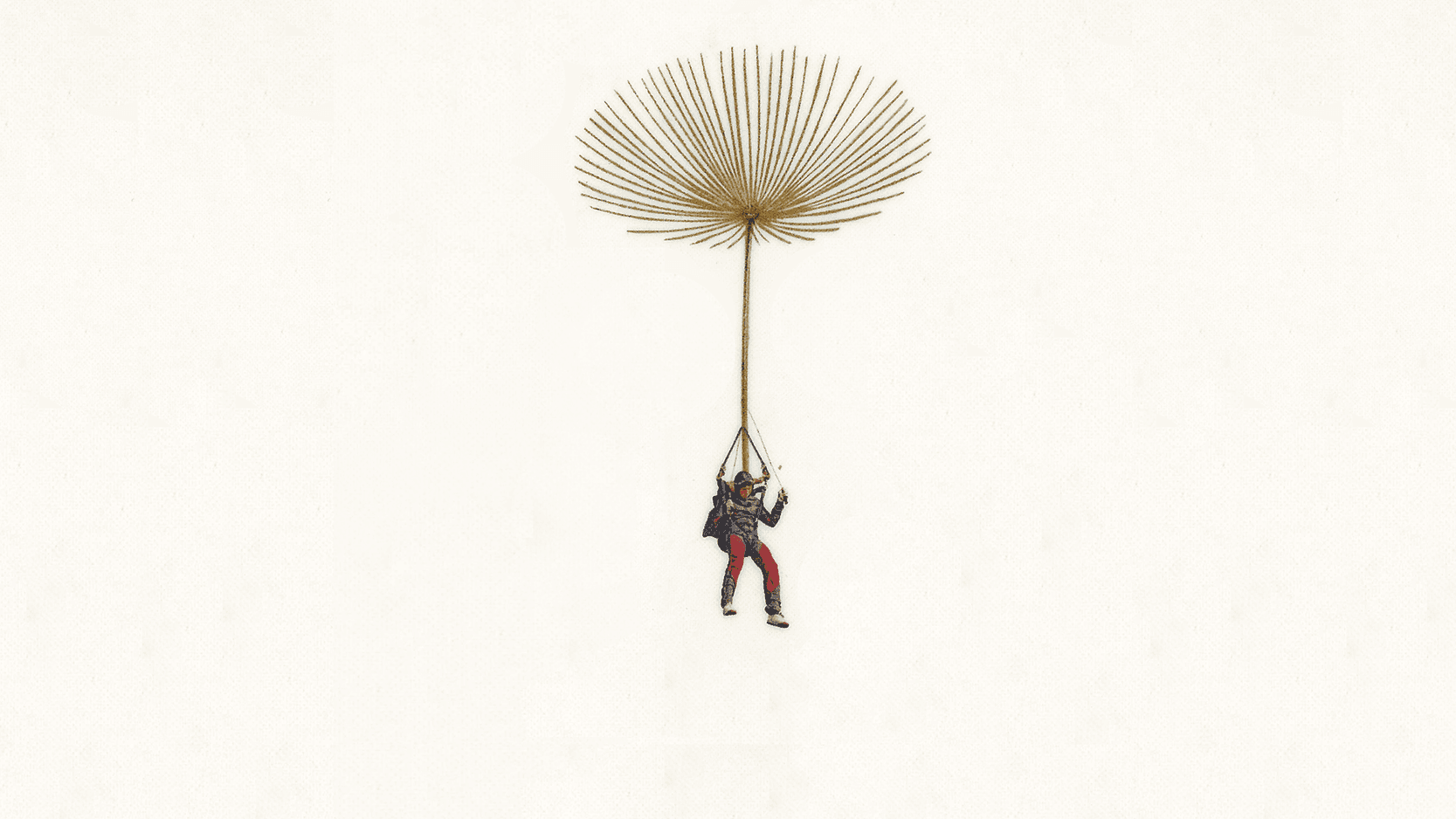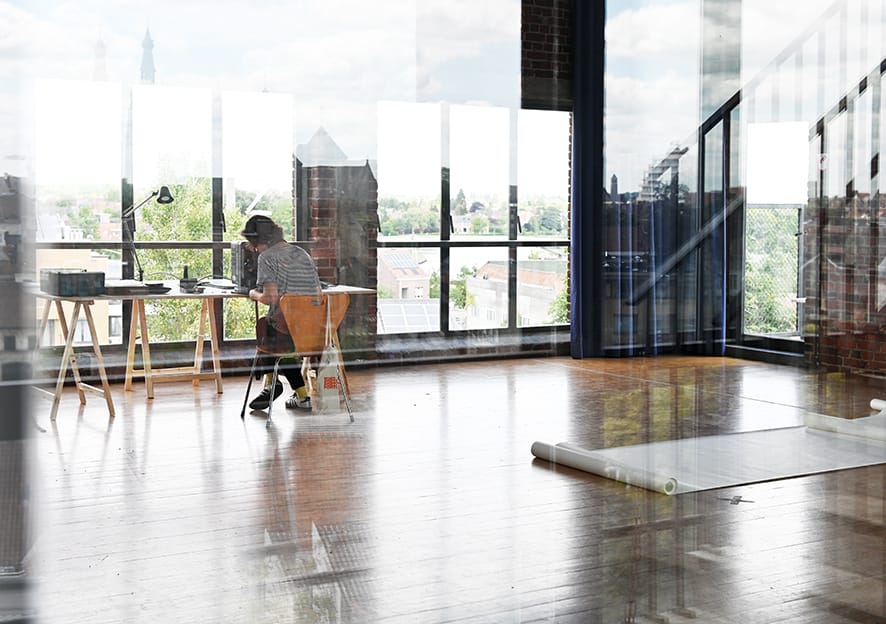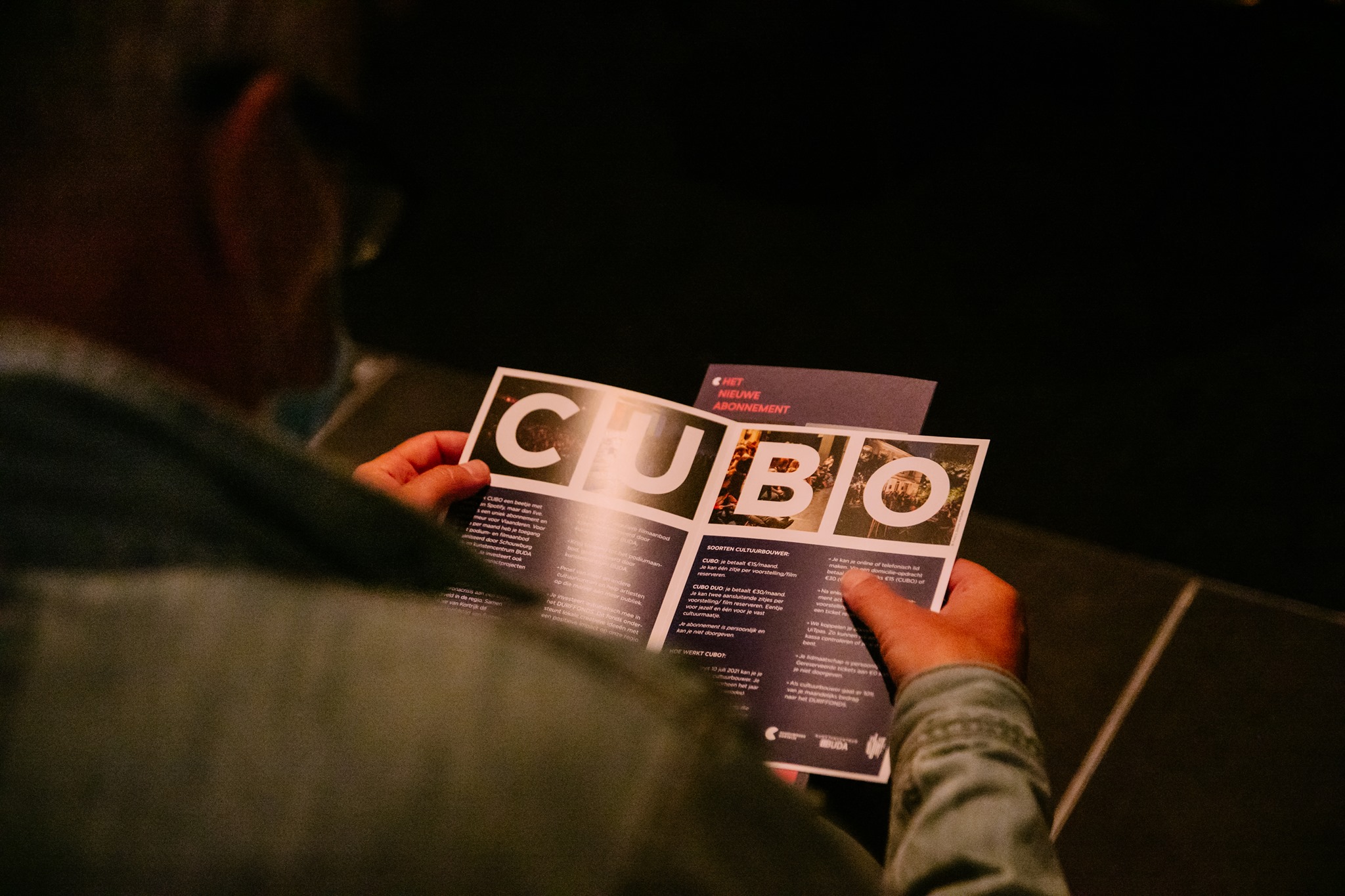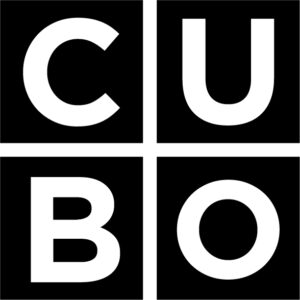Sara Manente brings a whole new interpretation to our feminist school with her White Garden at Budatoren. Mathilde Villeneuve asked her about her past work and the philosophy behind White Garden.
Can you elaborate on the development of your research based on fermentation?
For the past six years, the central focus of my artistic practice has been the link between live art and living cultures. I started with research called ‘Wicked technologies / Wild fermentation’ based on three main pillars: to explore more deeply what ecofeminist theories are; to learn different fermentation techniques; and to continue my dance practice in parallel with some musical experimentations. I was interested in female scientists, who think at a microbiological level about how bodies are formed and how they relate. I have to add that I was pregnant at that time, experiencing a visceral and estranging physical transformation, and I wanted to learn from this situation and from my home, where I spent much more time than before. In queer phenomenology, the English-Australian feminist scholar Sara Ahmed pays attention to the table where writing happens. In my case the table was my kitchen table.
How would you define ecofeminism?
I am not an expert, nor an academic. I usually don’t flag feminism when it comes up in my work, because I am too afraid of abusing it and making a label out of it. But I would say that ecofeminism* is a way to consider that we are ‘in’ an ecosystem and we ‘are’ an ecosystem at the same time.
I came across many different authors and theories relating, for instance, bacteria and the market, or gut-depression and feminism, or politics and compost. I am very interested in the American microbiologist Lynn Margulis, who questioned the way Darwinism was later reduced to the idea of ‘the survival of the fittest’, based on the concept of a linear and competitive evolution of the species, with branches that let only the best and most aggressive ones survive. On the contrary, Margulis made the case for a symbiotic vision, stressing the importance of cooperative relationships between species and organisms of different kingdoms.
Ecofeminism, anthropology and science (especially microbiology) help us to consider not only women, but all of humankind in relation to other species. They question our vision of female/male, reproduction, competition, distinction between individuals and species. They basically question the idea of the individual self, because an individual is never completely alone and autonomous. Ecofeminism forces us to focus more on the relation with the environment and other species, than on the individual per se.
How did you get from this research to ROT?
At that time (2019), I was doing research at a.pass (advanced performance and scenography studies) in Brussels and in residency at Constant vzw and some other art institutions like BUDA. After two years, as part of the Cycle 1/a.pass Research Center, it was proposed that I create a publication, thinking in terms of ‘performative publishing’. ‘Public’ means audience but also ‘public sphere’, considering publishing a way to ‘make public’.
I got the idea of creating a glossy magazine on fermentation. Firstly, because I was growing kombucha leather and I initiated a fermentation laboratory with two chefs, Ferran Mesa Turó and Eriks Ashmanis; secondly, because a glossy magazine was the right format to address the reader in a playful way with recipes, advice, (fake) advertisements and inviting images. I also like the sensorial aspect of a magazine and the relaxing read it offers as opposed to a theoretical book. Finally, it is a performance.
Acknowledging that my research was situated in an ecosystem of practices and people around me, I wanted to gather them in the same publication and draw a genealogical map. By proximate geography (first the colleagues of the Research Centre) but also by conceptual proximity – with people working with fermentation, food, somatic practices (the topic was ‘skin’, seen as the interface between the inside and outside of the body, its zones of porosity and marks. Kombucha is also a skin).
Currently, there are two editions of ROT magazine. The second one focuses on the question of immunity. A magazine has a rigid format that allows for a fragmented and surprising gathering of different theoretical and artistic practices. The dramaturgy of the magazine is always thought out carefully.
After sharing your research through the magazine, you developed a project called ROT Garden.
Yes. The first garden was created at BUDA during Almost Summer festival in 2021. It was an opportunity to present some performances, continue discussions and unfold situations already present in the magazine. I like the idea of an installation that can be approached as a living organism. I choose to summon the image of a garden because of what it evokes: concentration, time for yourself, being surrounded by living things, planting seeds, letting it grow, …. A garden follows a rhythm of biological processes of life. At BUDA the ROT Garden was already composed of different formats and temporalities: some permanent sensorial installations, performances within a more traditional time-space frame, and more discursive and theoretical moments.
Connecting theory and practice, mind and body, seems to be the hallmark of your work.
I suppose so, probably because of my education. I never studied full-time at an art academy, except for a year of fine arts – which I left, to happily join the post-master at a.pass when it was still in Antwerp. Before that, I studied semiotics and communication sciences and wrote my thesis on semiotics and dance. I have been practicing dance since I was four years old, but I could never dedicate myself only to that.
What happened after the ROT Garden at BUDA?
I was artist in residence at Wiels, the contemporary art centre in Brussels. For the first time, I had the desire to make something less ephemeral than performance or writing, and I had the possibility to work in the space, thinking in terms of sculptures and installations as bodies. I was discovering the eerie, mysterious and thrilling world of fungi. A few facts about mushrooms always come up: their capacity to make trees communicate, to connect different parts of a system, which makes them a sort of immune system for the soil. The possibility of myco-remediation: remediating, self-healing, detoxifying. Their resilience, for they can grow in disaster zones (like after a nuclear explosion). They also represent a possible future material for construction, an alternative to plastic and cement. And, last but not least, they have therapeutic qualities for the human brain.
Mushrooms represent one of the oldest species on earth. They are plant nor animal. Like us, they need to eat to grow: unlike plants, they are incapable of photosynthesis. They have a metabolism with a sort of inside-out stomach and have different ways of reproducing too: both sexually and asexually.
In The Mushroom at the End of the World, the Chinese-American anthropologist Anna Tsing discusses the capacity of certain mushrooms to grow in very difficult environments and the globalised commodity chains of matsutake mushrooms in relation to what she calls ‘the ruins of capitalism’. I am very interested in ruins as a process, something that is in transition and might change our perspective on past, present and future. It’s striking to imagine that everything we do and produce will become a ruin and a waste. Anna Tsing makes us imagine a possible world after capitalism. Like Donna Haraway, she is very inspiring in that sense.
The world of mycology is also interesting because of the relation between academia and self-taught mycologists, who are close to hacker culture in the way knowledge is transmitted.
Recently someone asked me again: ‘What is mycelium? How can you define it?’ The mycelium is a membrane, a mass of interwoven fine white filaments (hyphae) constituting a network of electrical signals (information), water, nutrients, … A connective tissue.
Finally, it is interesting to mention that mycelium is involved in processes of composting, generating heat, transforming, contaminating, and it does that with a sort of arrhythmia: between slow rhythms, silent undergrowth, and more intense developments with fruits growing very fast. Sometimes it stays dormant and comes back to life in specific circumstances.
After the magazine and the ROT garden, your (understandable!) obsession with fungi has developed into a performance called MOLD which premiered at BUDA during Almost Summer Festival 2022.
I worked from the double meaning of the word ‘mold’: one type of fungi, and the structure used to give a specific shape to a material. One word entails two logics: spontaneous proliferation and harnessing.
Those two definitions of MOLD are not contradictory for me but coexist. Our bodies are defined by both a structure (bones) and a membrane (skin) but also fluids and bacteria (blood, guts). Socially and psychologically, we need to individuate the self in its relations to others. This is how a community is built.
What was the vocabulary and material you had in mind for the performance MOLD?
In order to work with this double meaning of mold, I had several images in mind. For example, I wanted to do bondage on mushrooms. I had previously made a harness with kombucha skin (in collaboration with Günbike Erdemir and Inju Kaboom), and the graphic designer of ROT, Deborah Robbiano, was studying ‘radical mycology’ with Peter McCoy at that time.** These kinds of coincidences are rather important in my projects, which often branch into different constellations of people, places and materials. The mycelium started growing at Deborah’s, who has a garden, and then continued to grow in my studio, where different parts myceliated together in unforeseen ways. There I used shibari knots to hang them. This approach involves different agents: ideas, people, skills, chance, … and in that sense I don’t find it so different from creating a performance.
After creating MOLD, you continued the development of the ‘garden’ in different contexts. The last one will take place at BUDA during this summer’s festival.
I have assigned a colour to each of the three gardens related to ROT 01, like a colour filter that represents a mood and a curatorial direction in relation to the institutions which host them. For example, Far in Nyon applies principles of permaculture to the cultural institution with a positive approach to ecology, and therefore hosted the Green Garden. At Kaaitheater, situated in Brussels, I looked into contributions that focus on the doom and sci-fi scenario, artists with a not-so-optimistic approach: it became the Black Garden. In Kortrijk, I sensed from the institution a wish to embed and to find new relations with the inhabitants of the city. Thinking about the way mycelium grows – as filaments that connect and keep things together, which are usually white, work under the soil, regulate communication, exchange minerals, pass on electrical information – I decided to call it the White Garden. I looked for artists who contributed to the second ROT magazine who could be interested in working on that path.
This interview was conducted as part of Almost Summer, a Feminist Futures Festival 2024.
*Bringing together feminism and environmentalism, ecofeminism argues that the domination of women and the degradation of the environment are consequences of patriarchy and capitalism.
**Peter McCoy is the co-founder of Radical Mycology, a community organisation and movement that teaches people how to work with mushrooms for personal, societal and ecological resilience.

